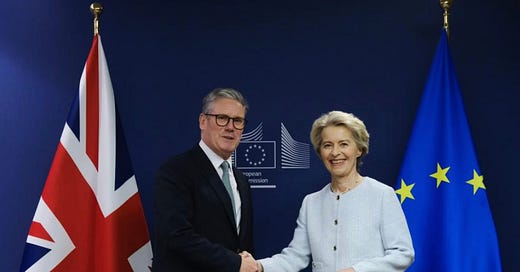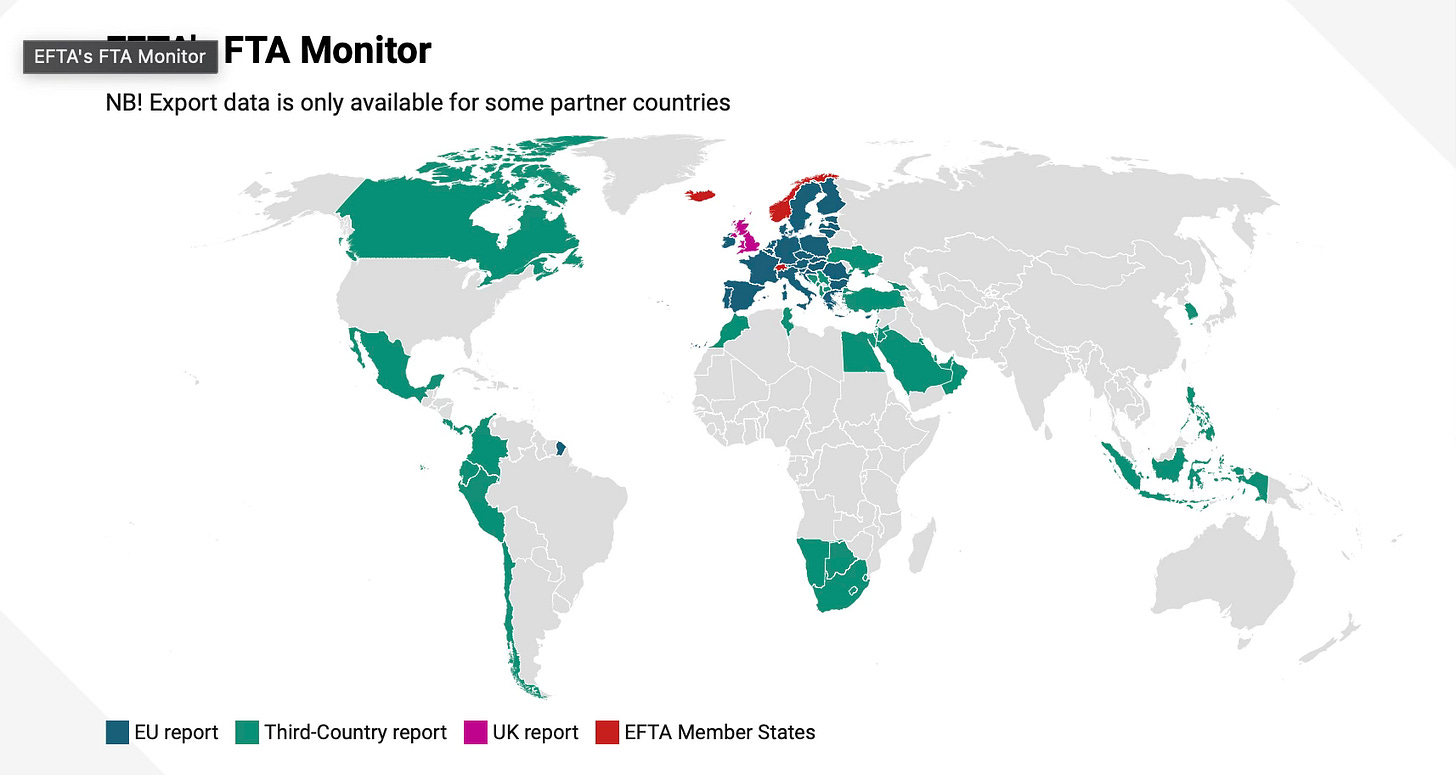Published in the May 21 edition of The National.
An email from Viceroy Murray hit my inbox this morning where he boasted about the UK/EU deal saying he was “incredibly pleased with what has been delivered.”
It doesn’t take much to please the Viceroy. The deal is pathetic. He says it could add £9bn to the UK economy by 2040. That’s just 0.00035% of the UK’s £2.56tn GDP, while Brexit has slashed it by 5%.
And who is he kidding that this will help Scotland? The Scottish Fishermen’s Federation has slammed the deal. It gives EU fishing vessels access to UK waters until 2038. Kate Forbes complained Scotland wasn’t consulted - fisheries are devolved - but she should know that power devolved is power retained.
He trumpets that the deal “opens the door for the UK to participate in a €150 billion loans-for-arms fund backed by the EU’s shared budget, with huge potential benefits for the Scottish defence industry.”
Wrong. New defence contracts will funnel money to private corporations based in the US and Europe. Defence share prices are soaring at the prospect. And there’s not much bang for the buck. Every pound spent on defence generates less than £1 of economic activity.
Since Starmer has ruled out returning to the EU, an entity that has increasingly concentrated political power in Brussels, diminishing the sovereignty of its member states, why wouldn’t Starmer consider re-joining the European Free Trade Association (EFTA), created in 1960 to foster economic cooperation and free trade amongst its members?
The UK was an EFTA founding member along with Austria, Denmark, Norway, Portugal, Sweden and Switzerland, before leaving in 1973 to join the European Economic Community that became the EU.
Today, EFTA has four members: Norway, Iceland, Lichtenstein and Switzerland. The first three are members of the European Economic Area (EEA) which gives them access to the EU’s Internal Market. Switzerland is outside the EEA and negotiates its own set of bilateral agreements with the EU.
Other advantages to EFTA membership include:
It excludes agricultural and fisheries policies, has no customs union, common trade, foreign or security policy,harmonised taxation or monetary union.
All members can take part in Schengen (freedom of movement) through bilateral agreements.
It negotiates free trade agreements and has 33 with 44 countries and territories outside the EU, and members can make their own deals with countries whereas EU members can’t negotiate with non-EU countries.
Members avoid the EU political and social integration and cumbersome decision making process.
What’s not to like? The only stumbling block I can foresee is that the EFTA Council, which decides who to admit, may not want to let the troublesome UK back in. I know I wouldn’t. However, it may view the application from an independent Scotland more favourably.
But first Scotland would need to leave the UK before EFTA or EU membership could be considered. If the Scottish Administration was serious about helping Scotland, it would be furiously working on a viable exit plan.
Once Scotland was independent, the pros and cons of EU vs EFTA should be publicly debated and then decided by the sovereign Scottish People in a national referendum.
And we’d be free of the gaslighting Viceroy whose only real job is to screw Scotland on behalf of his imperial masters.









I'm pretty sure that the EFTA Council wouldn't admit even a groveling UK back in.
Apart from the UK's arrogantly troublesome nature and demonstrable behaviour when dealing with European trading partners they are simply too large - they would swamp the existing 4-member bloc. As you say Scotland is an entirely different proposition.
Sheer karma for Keir Starmer.
There is no deal, the PM is lying, the MPs and the UK media are too thick to realise he is lying. Some of the media in the EU states are correctly reporting the status of the talks to date.
All one has to do to get to the truth, is look at the EU communications about the talks. They were "exploratory" talks, i.e. talks about talks, the actual agreements have to come later.
All that has been agreed is some vague political agreements, plus the political agreement to continue the current fishing arrangement for another 12 years. The EU will want that latter point to be converted in to a treaty.
e.g. see this Q&A document from the EU, the Commission needs to get a Mandate from the member states to begin negotiations. The outcome of those negotiations will almost certainly be a Treaty providing for the various arrangements, once the actual negotiations have concluded.
https://europa.eu/newsroom/ecpc-failover/pdf/qanda-25-1268_en.pdf
This is also the reason the PM was unable to give any details when questioned in Parliament, and batted away various questions. He can't give answers when the negotiations have not occurred, never mind concluded.